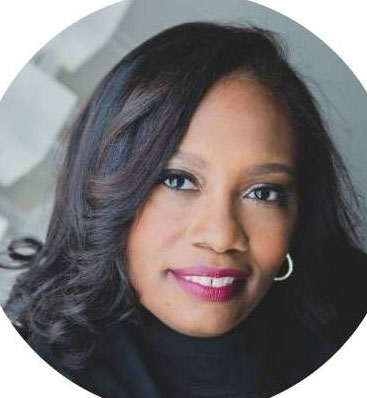By Mesheca C. Bunyon, OD
March 18, 2020

Your employees are the reason patients will return to, or avoid, your office. If you choose the right people, you can greatly increase your chances of practice success.
Our private practice, Special Eye Care, usually has at least four support staff and two optometrists. I would love to say that in 15 years of private practice we have not had to recruit, but the truth is that it is an ongoing process to find great staff.
Every quarter we are in search of new staff who are able to fulfill our mission and vision. The new candidate must be on board with the level of professionalism and patient satisfaction that we desire. After all, it is imperative that staff members know that patients are the reason why we are in business and are able to remain profitable enough to sustain our practices.
Our hiring needs tend to be cyclical. For example, in December 2019, we had five staff members, but then an employee who had been with us for one year was terminated and another employee began college in January 2020. We just hired one new person in January and another a few weeks ago. The door is a revolving one. However, we cannot function with fewer than four staff members without risking staff burnout.
Other Articles to Explore
We are constantly reevaluating whether we have the right team. It is an ongoing process. Just when you think you have the right team, something happens and you have to start the search again.
Determine the Needs of the Position
The first step in the process of recruiting is brainstorming the type of position that we are trying to fill. It also includes evaluating the personality that we are looking for in our next staff member. In all businesses, certain positions are hired based on skill, personality and sometimes a mixture of both.
We like to hire based on position, such as receptionist, technician, optician, etc. A technician needs to be detail-oriented while a receptionist should be pleasant, organized and detail-oriented to some degree. We have staff definitions, but we also like the idea of cross-training our staff should the need arise or someone be absent.
I love the ease of using Indeed.com to place ads for our practice needs, and the cost is generally free, no investment considering you must find people that you will entrust with your patients. I like to wait 24-48 hours until about 10 resumes have been sent to me before searching through them and making a decision about which applicants to contact. Indeed.com allows you to respond directly through your personal portal, as well as enabling candidates to communicate with you.
Include Salary Range in Job Ad
I always include a salary range for the job in the ad that is posted. This takes the guesswork out of what the candidate expects to be paid, which reduces the need to negotiate. If the candidate has experience in the position that I am hiring for, the salary may start at the higher end of the range that was posted in the employment ad. Conversely, someone with no experience may have a starting salary closer to the lower end of the proposed salary range. I always let candidates know that salary is renegotiable after 90 days of employment.
If salary is questionable, but the candidate fits what you are looking for, consider meeting them in the middle. Think about the value the candidate will bring to your office. Remember, make them happy within reason. For example, if your ad suggests paying $18-$20 per hour for an optometric assistant, but the highly qualified candidate insists on making $21 per hour, that extra $1 per hour may be money well spent.
Look for Right Balance of Experience & Room to Learn
I prefer applicants who have knowledge of the eyecare/optical field because they will already know the language of our business. However, previous employment in healthcare and customer service tend to produce great support staff as well. Resume red flags are misspellings and grammatical errors since it requires attention to detail to work at any doctor’s office.
5 Key Questions for First Interview
After applicants are contacted for in-person interviews, we utilize a non-patient care day in which to hold interviews. Key questions during the interview process are:
1. What do you know about this practice, myself and about optometry?
2. Have you ever had to deal with a stressful situation at work and how did you handle it?
3. What are your weaknesses?
4. What are your greatest accomplishments?
5. Why should I hire you?
Editor’s Note: All questions asked of applicants should be reviewed by an attorney BEFORE being asked AND anyone interviewing applicants should understand exactly what questions are illegal.
The answers to these questions generally tell me the type of temperament the applicant has, what motivates them and the type of personality they have. For example, if the applicant says they have no weaknesses, either they are being untruthful or they may be a perfectionist. Neither would be a person I would want to hire for my office.
Consider this: An applicant may disclose that they used to work in another optometry office in which they had a manager whom they didn’t like because she kept asking them to multitask. The applicant then discloses that this caused a shouting match between the two. That story could be an indication that the applicant may not handle stress well.
Consider another example: An applicant discloses to me that they know nothing about my practice, myself or optometry. That tells me the candidate has not taken the time to do research about my practice. In the age of Google searches, that would not be an impressive candidate.
A Trial Day & Key Questions for References
After the initial interview, if I feel that the candidate is a good prospect, I will invite them back for a trial day and ask them to e-mail me at least three professional references. The trial day, usually 3-4 hours, acts as a working interview. This allows us to see how they work in our office and gives the candidate an opportunity to see if they like working in our office, mutually beneficial.
Editor’s Note: There are legal implications if the applicant is working in the practice for any reason. Again, run this by an attorney to ensure you are following state and federal law.
I usually check the employee’s references prior to the trial day unless the candidate is returning the next day. For references, the key questions I ask are:
1. How long have you known the applicant?
2. In what capacity do you know them?
3. If they were employed by you, would you hire them again?
4. What words would use to describe this applicant?
Most of the time, candidates have carefully chosen their professional references. In all my years of private practice, I have yet to hear negative answers to these questions. Therefore, I think that references are great, but not the primary reason for me to hire a candidate. However, if another doctor has recommended a candidate because they have employed them, I usually will take the reference more seriously.
Searching a candidate’s background can be helpful. I have rarely used a background-check service for past candidates, but plan to start using these services more. I currently search myself through the free public records web sites of surrounding counties and jurisdictions.
Patience in the Hiring Process Will Pay Off
Hiring staff can be a frustrating process, but think of the rewards of ensuring patients have a great experience in an efficient and profitable practice. Take your time and trust the process. Building a dream team requires effort and patience.
 Mesheca C. Bunyon, OD, is the co-owner of Special Eye Care in Camp Springs, Md. To contact her: drmesheca@gmail.com . Click HERE to learn more about Dr. Bunyon.
Mesheca C. Bunyon, OD, is the co-owner of Special Eye Care in Camp Springs, Md. To contact her: drmesheca@gmail.com . Click HERE to learn more about Dr. Bunyon.

























